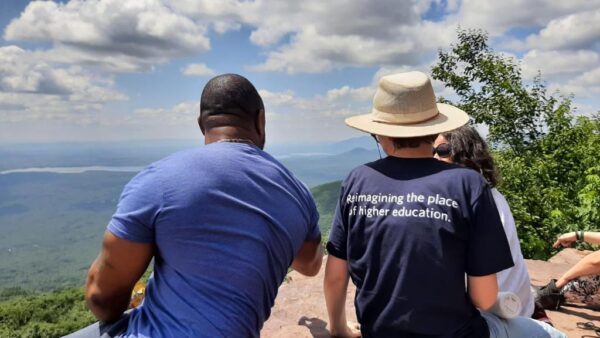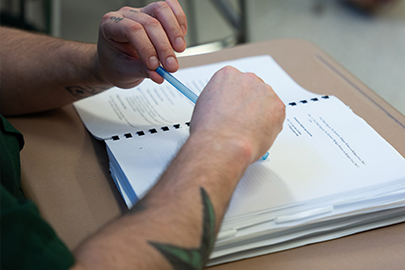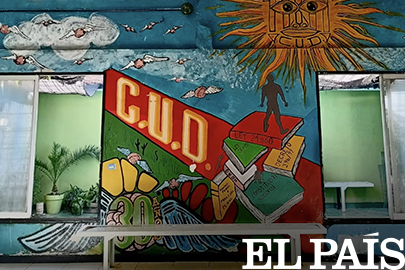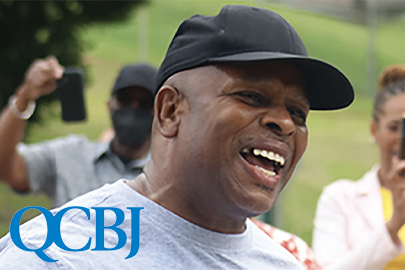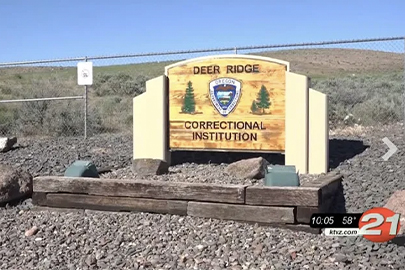BPI held its fifth annual Summer Residency this July, hosting more than 20 practitioners along with new BPI staff for an intensive and immersive two-week sequence of 25 workshops on Bard’s Annandale campus.
“The cultivation of a community of practice, and meanwhile an infusion of powerful practices for no-corners-cutting higher ed opportunity in prison, built to last.” – Member of Cohort 2023
This summer marked the official launch of the return of Pell Grant eligibility for incarcerated students, setting off a new era in the field of college-in-prison. What this new era will look like remains to be seen as new processes, bureaucracies, and evaluations are being put into place that will either help encourage or discourage colleges and universities around the country from building new pathways to degree access for incarcerated students at various levels of intensity, ambition, and optimism. Now more than ever, a strong, ambitious, diverse community of practice is essential to the long-term stability and success of the field. As more universities find their way to this work, a growing concomitant field of consulting is emerging as well. Strangely, this growing field is often defined by voices who have not themselves built, run, or participated in degree-granting programs in prison: think tank “expertise” without the benefit of actual practitioner experience.
The BPI Summer Residency stands as a unique site of technical assistance and professional development: built on over two decades of direct practitioner experience, led by BPI subject matter experts from across the BPI staff and alumni community. While residents get the opportunity to “get under the hood” with 25 immersive workshops, they also benefit from two weeks of learning from each other. The residency is not built to be prescriptive. It is not intended to spread a “BPI model,” but rather to offer a framework, a set of principles, and a practice of thinking through problems, obstacles, and opportunities that will result in a robust and diverse landscape of higher education in prison where each program represents the best of their home institution’s traditions, curricular hallmarks, and culture, and is built to be sustainable. The Residency supports college-in-prison institution building designed to last through the changing political currents that, like public funding, may come or go.
“BPI’s Summer Residency is the most insightful and useful professional development experience I’ve ever participated in. Not only did I learn best practices and rules of thumb from the nation’s premiere college-in-prison program, but I was also able to process these lessons with BPI alums and a community of practitioners. Running a college-in-prison program involves strategy and community. BPI puts its cards on the table during the Summer Residency and invites participants to follow suit so we can be the strongest possible community for incarcerated students across the country and globe.” – John Fantuzzo, Eastern University
The 2023 cohort represented a broad spectrum of emerging leaders in the field of college-in-prison coming to Bard’s campus from public and private institutions, HBCUs, small liberal arts colleges, Catholic schools, and large research universities as faculty, program directors, newly hired practitioners, graduate students, alumni, and directly impacted people. The cohort came from Connecticut, Georgia, Illinois, Indiana, Louisiana, Massachusetts, Missouri, North Carolina, Pennsylvania, Texas, Utah, Washington, Australia, South Africa, and the United Kingdom.
Workshops were led by BPI staff and alumni subject matter experts from across the academic, reentry and alumni affairs, national engagement and advocacy, development, and senior leadership teams. We also welcomed back BPI Senior Advisor for Global Initiatives Baz Dreisinger, to talk about her work as Founding Executive Director of Incarceration Nations Network and the global landscape of education in prison.
“This was one of the most meaningful and insightful fellowships I’ve ever attended. I love the no-holds-barred honesty and transparency in what it takes to do this work. It was refreshing to see so many people who are committed to doing this work, even though it isn’t the easiest thing to pursue. Additionally having BPI alum lead the charge in workshops was amazing! It shows in real time how much this program is needed but also efficient. Not only do I feel like I learned a lot, I feel like I got a real plan with action steps on how to get my program started.” – Keyra Johnson, Southern University
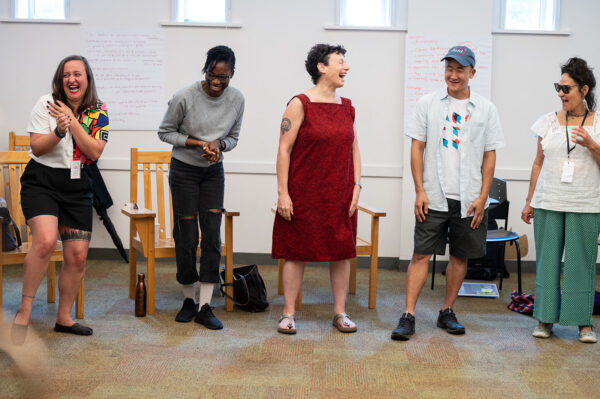
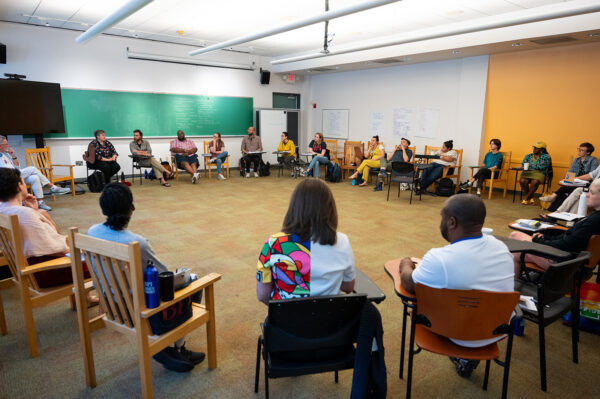
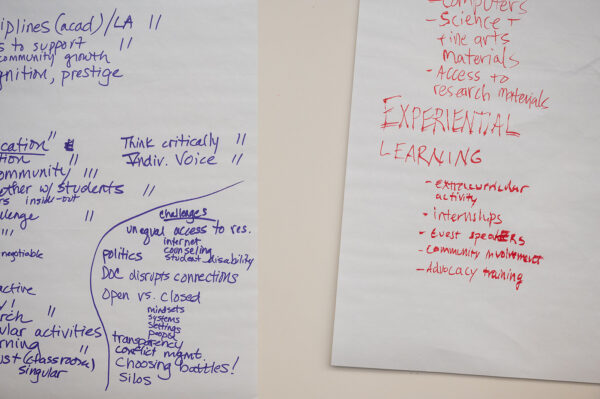
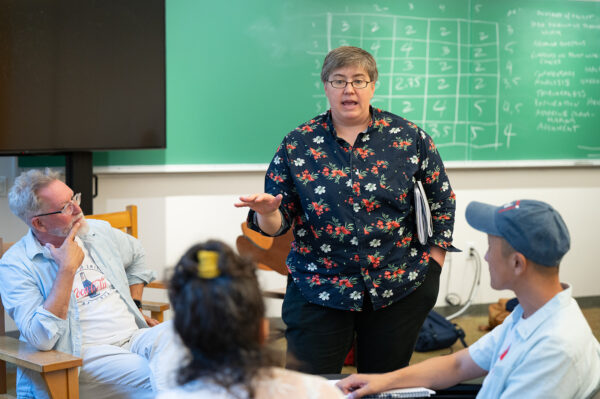
The residency’s workshops cover philosophical and technical approaches to the practice of college-in-prison from student orientation to commencement, curriculum, pedagogy, admissions, academic support systems, working with departments of corrections, as well fundraising, advocacy, reentry, and alumni affairs.
“My time at the Bard Prison Initiative was one of the most inspiring events in my life. As a person, as a teacher, and as a program administrator, I felt valued and energized. I absolutely love the people I worked with, both the Bard staff and my fellow ‘campers.’ And the members of the staff who were formerly incarcerated added so much to the time, as they demonstrated leadership and thoughtfulness over and over. All of these people showed me the way forward so many times, in so many ways.” – Bill Kerwin, University of Missouri
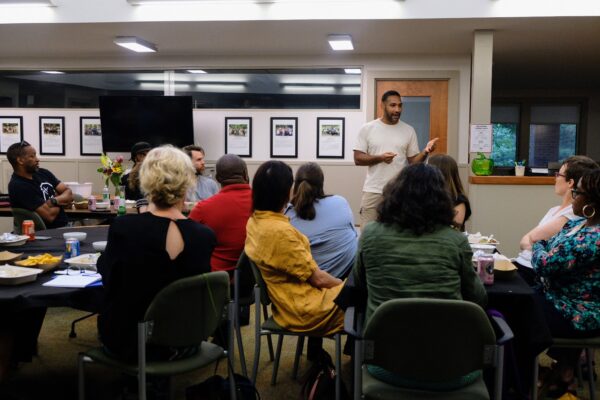
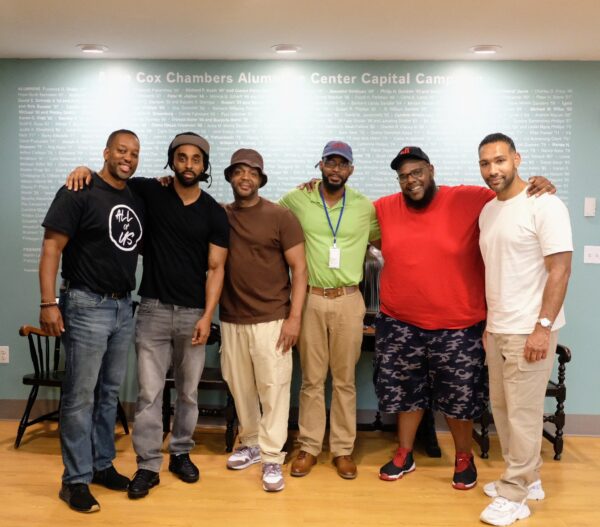
We were joined by Senior Governments Affair Officer Dyjuan Tatro ’18 for a special Alumni Advocacy and Government Affairs dinner, hosted at the Bard Alumni/ae Center. Dyjuan discussed how he has used his political background to help advance and expand the field of college-in-prison, including harnessing city and state funding, restoring New York’s Tuition Assistance Program, and changing Merit Board eligibility rules in New York. Dyjuan shared best practices BPI has developed in communicating with elected officials and discussed how to apply the lessons he’s learned to local contexts for programs throughout the United States.
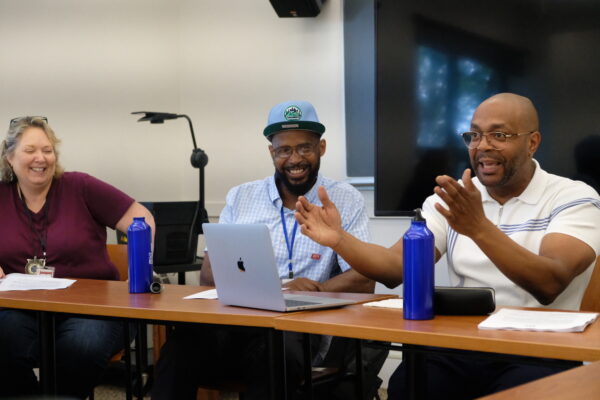
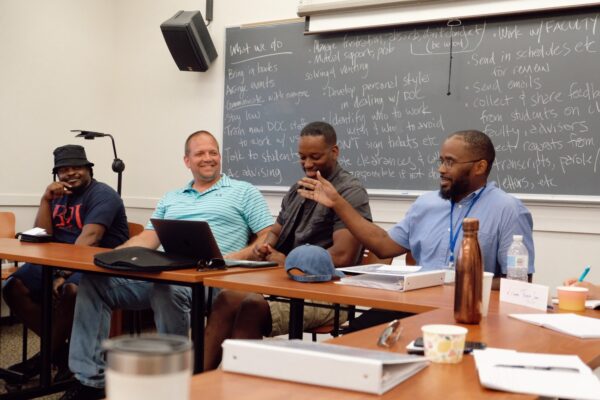
BPI alumni represent essential voices in the workshops that take place across the Residency. This year we welcomed John Henson ‘21 and LePerry Fore ’13 for the Cultivating College Community Inside workshop – with returning workshop leaders Tammar Cancer ‘17 and BPI’s Upstate Reentry Lead Shawn Young ’19. LePerry also co-led the Reentry: ConnectED workshop with Nikko Vaughn ’15, BPI’s Associate Director of Education & Professional Advancement. Nikko shared some trial-by-fire experiences in his role supporting returning students who are completing their degrees post-release at more than 40 different colleges or universities, or advancing to graduate-level programs at the Masters and PhD levels. Program Directors for the NYC Microcolleges, James Kim ’21 (Brooklyn) and Demetrius James ’17 (Harlem) led workshops on building academic resources and college libraries, tutoring and mentoring, admissions, and more.
“Folks at many stages of program development are able to learn together in a way that is simply not possible in short-term time periods or virtual environments. Two weeks is a commitment, but it is also a gift for the committed practitioner.” – Sharon Varallo, Augustana Prison Education Program
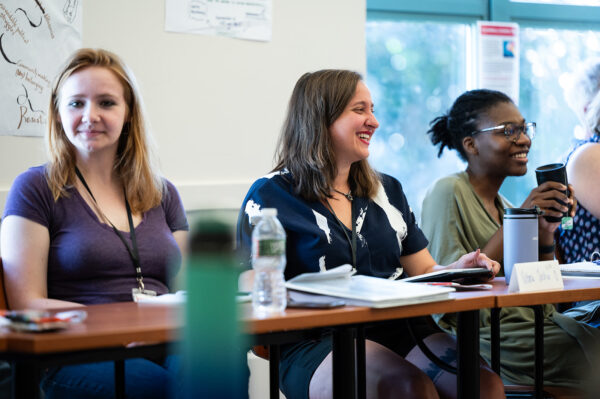
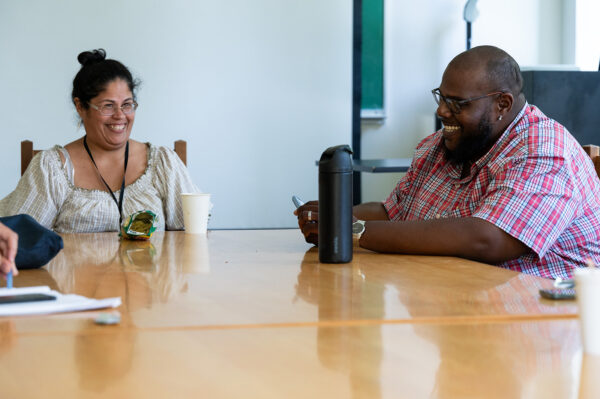
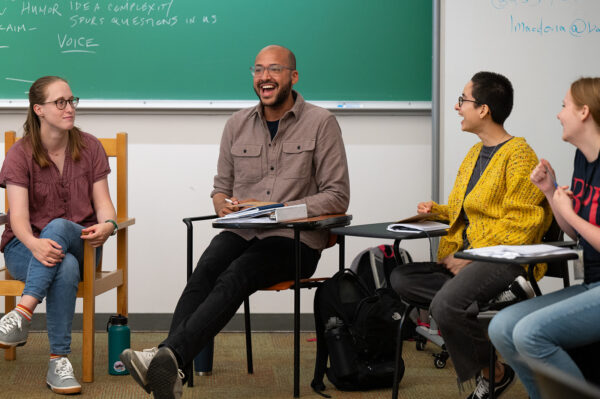
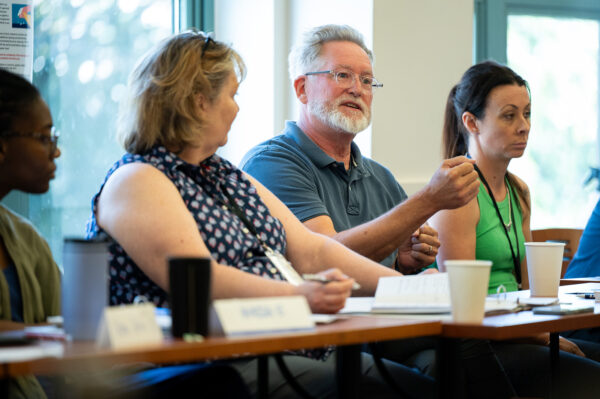
“The methodology is imparted in a richly described open-source fashion – the overall design of the program (both BPI itself as well as the two-week residency) is extremely well-reasoned without being prescriptive. You will come away more completely anchored in your own context, with the inspiration of more than one contemporary iteration of what’s possible when a college enters a prison, propelled by the confidence that comes with being one among many clearing away obstacles to learning.”
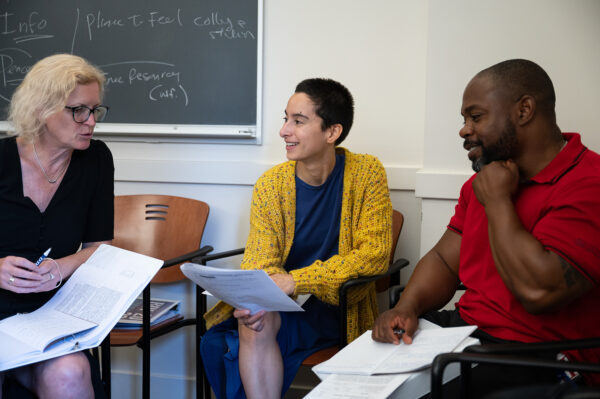
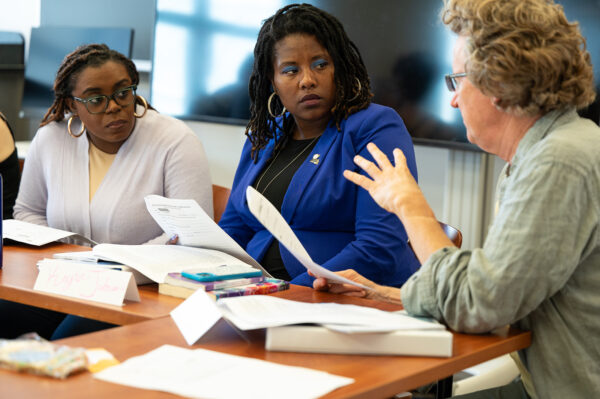
In addition to sharing the two decades of experience BPI has built in the college-in-prison field, space was created for residents to share about their programs and compare notes across different institutional, geographic, or political contexts.
“The BPI Summer Residency was an intelligent and useful professional development opportunity. As the director of a younger program, it was great to learn from BPI’s wisdom and experience.”
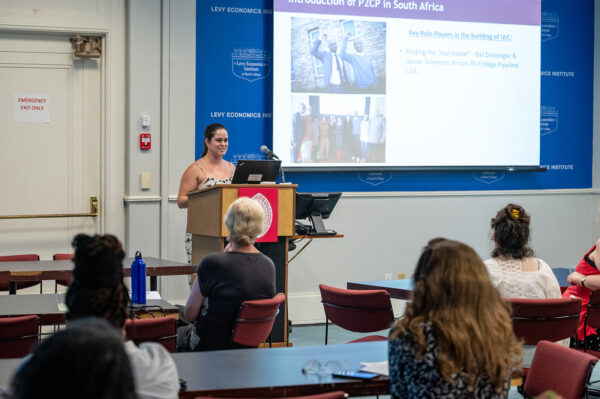
“The BPI Summer Residency offered me a fresh perspective… I have returned home with a fire in my soul and peace in my heart.” – Caitlin Lee Jardim, Stellenbosch University
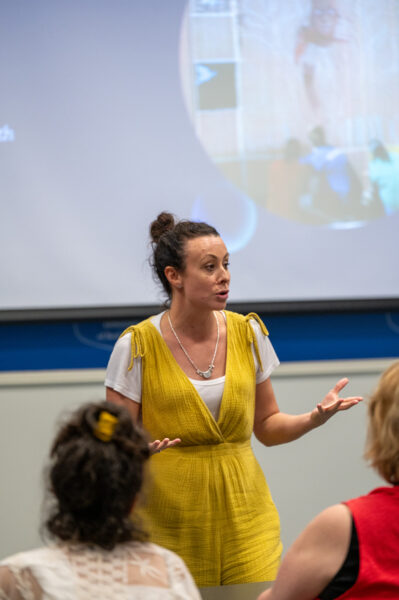
The BPI residency really helped me move my project to the next level. My thinking has shifted from the local to the global impacts of this work. I no longer feel alone in the world. – Adelle Sefton-Rowston, Charles Darwin University
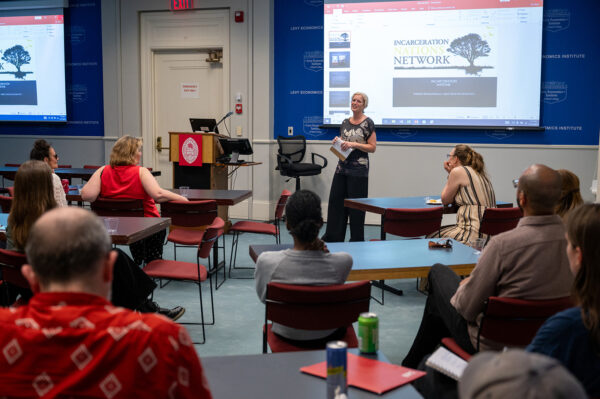
Caitlin Lee Jardim of Stellenbosch University in South Africa, Adelle Sefton-Rowston of Charles Darwin University in Australia, and Ruth McFarlane of DWRM in the United Kingdom participated in the international programs report-out, sharing the history and development of their programs, and the local political and racial contexts of incarceration and punishment as part of our evening on global projects and initiatives.
“Attending the BPI Summer Residency 2023 was an absolutely life-changing experience for me, both personally and professionally. Within a week of being home I am already putting new ideas into action and I know that the connections I have made will lead to many fruitful projects and collaborations over the coming weeks and months and years. … It was a joyous experience, packed full of inspirational people and information. I am brimming with ideas and excitement.” – Ruth McFarlane
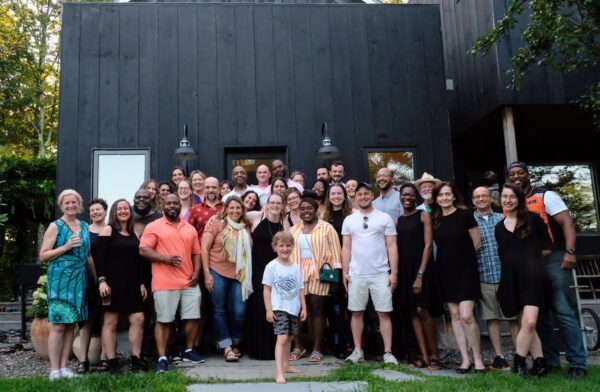
The Summer Residency will be followed by webinars, convenings, and other events to facilitate an on-going community of practice across residency cohorts and programs. This annual event of community and capacity building expands BPI’s Consortium for the Liberal Arts in Prison, first founded in 2009, which currently represents 15 formal college-in-prison partnerships in 10 states. The Residency broadens this community to practitioners in over 25 states with numerous fledgling and emerging college-in-prison projects supported by ongoing technical assistance from BPI’s National Engagement team, and by each other.
“This was an amazing experience! I am not alone in feeling, I am sure, that this time will greatly improve the way I approach the program I am working on. In the short run, I have inspiration and ideas; for the long haul, I have ideas, nuts-and-bolts, allies, models, and once again inspiration. I am so grateful to have been part of this amazing cohort.”
